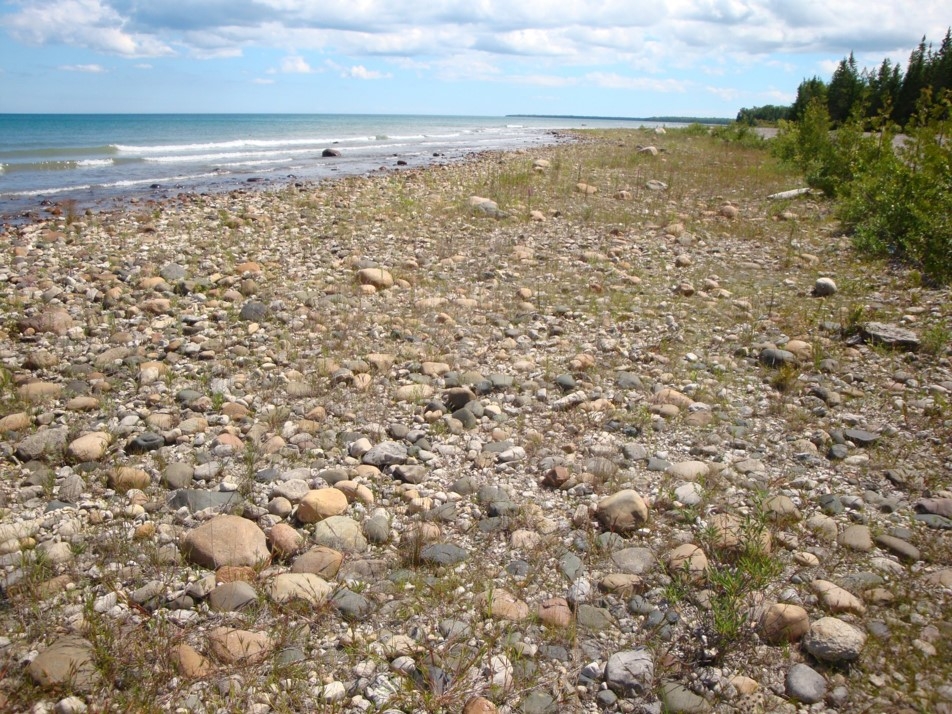Sand/Cobble Shore Group

Sand/Cobble Shores are sparsely vegetated communities that occur along the Great Lakes shoreline. Substrate types that support Sand/Cobble Shore include sand and gravel, limestone cobble, sandstone cobble, and volcanic cobble. The soils of bedrock-derived Sand/Cobble Shores are typically limited to neutral to alkaline sand and gravel deposits occurring between and beneath the cobble, but shallow organic sediments can accumulate in protected inner portions of the shore. Vegetation is typically sparse because storm waves are prevalent and soil development and suitable substrates for plant establishment are limited. Natural processes that influence species composition and community structure include wind and wave action, Great Lakes water level fluctuation, winter ice scour, and desiccation.
Four natural community types fall within the Sand/Cobble Shore group, including sand and gravel beach, limestone cobble shore, sandstone cobble shore, and volcanic cobble shore. Classification of these Sand/Cobble Shore types is based primarily on differences in substrate composition, although species composition and community structure also vary by substrate.
Citation
Cohen, J.G., M.A. Kost, B.S. Slaughter, D.A. Albert, J.M. Lincoln, A.P. Kortenhoven, C.M. Wilton, H.D. Enander, and K.M. Korroch. 2020. Michigan Natural Community Classification [web application]. Michigan Natural Features Inventory, Michigan State University Extension, Lansing, Michigan. Available https://mnfi.anr.msu.edu/communities/classification. (Accessed: January 23, 2026).

